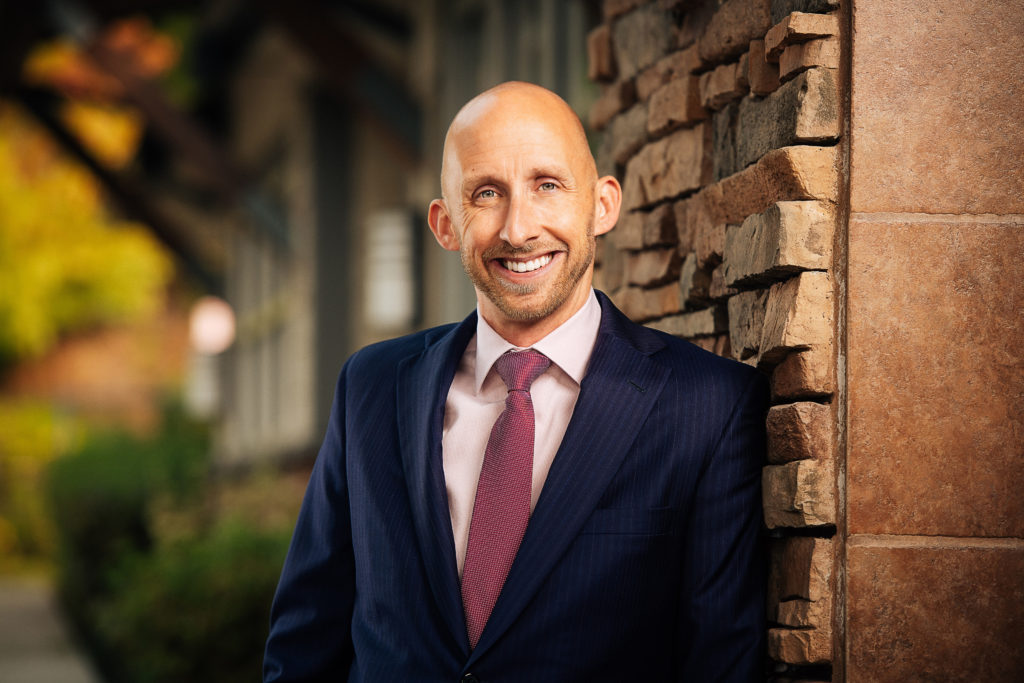Personal Connections Matter, Here’s How To Build Them
Advisors often get caught up in the day-to-day processes of their practices and forget that they significantly impact their client’s lives in many ways.
4.5 min read

Financial Planner, CFP®
Last year, a terminally ill client called my office, wanting to speak with me. He said, “Hey, I’m pretty sure I’m going to die tomorrow. I just want to go through my finances again to ensure my wife will be taken care of.”
I hopped on a Zoom call with him immediately, and we had a terrific conversation. We went through all of the details of his finances and double-checked that everything was the way it needed to be.
As we were wrapping up, my client told me, “Now, I know I can die in peace. It’s been great working with you, Matthew. I wish you all the best.”
And he passed away the next day.
It’s an utter privilege to be granted that level of trust—it’s incredible.
Too often, I think advisors get caught up in the technical aspects of their practices and forget that they’re impacting real lives—real heartbeats. We get so stuck in our day-to-day processes that we must intentionally pause and reflect on the people we serve.
Recently, I had the opportunity to sit down with David Gow, a phenomenal financial planner from Scotland, to discuss how you can build better client relationships.

Personal moments with clients
I love that financial planners worldwide have the same issues and are finding similar solutions to their problems. Ultimately, no matter where you live, you still work with human beings.
You’re working with living, breathing people who worry they’ll run out of money in retirement. People are concerned that they are paying too much in taxes or that the market will fluctuate.
While the rules may differ from place to place, humans are all the same in the soul.
About a decade ago, David Gow had a few client interactions in a row that drilled home how vital his relationships with clients are, and maybe you’ve had a few of these, too.
During the first client meeting, David could tell that Bob was having trouble. He started to wonder if he had done something wrong. Maybe he had not explained something clearly or failed to educate Bob on the topic. Then he wondered if there was something wrong with investment performance.
David prodded a little because the conversation was stilted, and he sensed something was wrong. Finally, Bob said he wanted to tell David something he hadn’t told anyone—not his wife or family. Bob didn’t want David to be a therapist or his friend.
But Bob trusted his advisor, David, and needed help planning for the future because Bob was an alcoholic.
This was the first moment David realized he was more than just a financial planner; he was a trusted partner. Like you, David takes someone’s future and helps them through the economic aspects of it.
Within that same month, David had a client come in and shared that he was getting a divorce. Another couple, Jane and Jeff, shared that Jane had late-stage cancer, and they needed to prepare for that. David learned about Jane’s cancer diagnosis before her children.
As a trusted partner for your clients, you will witness clients experiencing the best and worst moments of their lives.
Building emotional connections
These experiences got David thinking about how he delivers value to his clients. After digging through his demographics and analyzing surveys and NPS scores, he realized he kept getting the same client feedback during Surge:
Meeting with you gives me peace of mind.
You’re giving me a greater sense of security.
You reassure me that I’m on track whenever I meet with you.
I look forward to hearing everything is fine, and I have nothing to worry about.
Early in a client relationship, David noticed that clients are most excited about defining their goals and setting objectives to meet them. However, as time passed, that relationship aspect became less exciting as the financial plan was implemented.
As the years go on, growth becomes less important to clients because they can see the progress. Knowing their situation and providing them with a sense of security became more important over the years.
Personally, I love the transition from focusing on goals to building a relationship. If we consider this from the lifecycle of a client, they want to retire at a certain age and buy certain things.
However, getting to that point is so subjective and easy to overlook.
David found that the power of your questions correlates to your ability to be an excellent financial planner. This doesn’t mean you go down a list of scripted questions as soon as your clients sit down for a meeting.
Through experience and wisdom, you must learn when to shut up, which questions to ask, and understand who your client is. When you can do that, you can push your clients to be the best versions of themselves.
Before David starts digging in deep, he always apologizes in advance:
I’m really sorry about this, but I’m not just your financial planner. I’m here to challenge and help you live in your best interest.
I may ask you some difficult questions.
Then David will ask why the client isn’t giving more money to charity or why they don’t spend more on themselves. He’ll force them to question their spending habits, which can be challenging.
Often, advisors are afraid to ask these questions because they are super personal or their habits are entrenched. But you’ll never be able to be a partner if you don’t push back occasionally.
Finally, David ends the meeting by asking the client, “How do you feel?”
He’s not asking to be lovey-dovey—he wants to find the root emotions they’re connecting to their experience. He wants to understand where they are coming from and use that as an anchor for the next meeting.
When you do well, in five years, your clients won’t remember what you’ve done, but they will remember how you made them feel, and that’s what matters most. That’s how you build the kind of connection that’ll change lives.
Popular Topics
Is That OK With You?
One of the most significant differences between ‘good’ advisors and rock-star level advisors is
Still Holding Out on Surge™? 2023 Could Be Your Year
Micah Shilanski, CFP®, busts myths and misconceptions surrounding Surge meetings and shows how
Like Coke from a Coffee Mug: Run Your Best Client Meeting
Client meetings can be a dreaded part of a routine or you and your clients’ favorite part of your
Value Adds
If you are routinely providing clients with value adds in a consistent, efficient, and deliverable
5 Questions Every Advisor Should Ask
Matthew Jarvis, CFP®, answers five essential questions every advisor should ask to transform
What You Should
READ NEXT
Don’t Be Fooled By The Illusion of Zero Effort
Matthew Jarvis, CFP®, shares a simple secret to success that most advisors avoid in their firms: the power of repetition.
Masterclass Sneak Peek: Check Out Micah’s Prospect Process
Micah Shilanski, CPF®, shares how he sets the stage for a premium client experience for his prospects so he can deliver as much value as possible during prospect meetings.
5 Questions Every Advisor Should Ask
Matthew Jarvis, CFP®, answers five essential questions every advisor should ask to transform meetings from mundane to meaningful, uncovering clients' true priorities and
Start the change today!
Get our 3 most popular power sessions FREE. You and your team will learn about: Time Blocking, the One Page Financial Plan, and the “Buckets of Money” approach.



